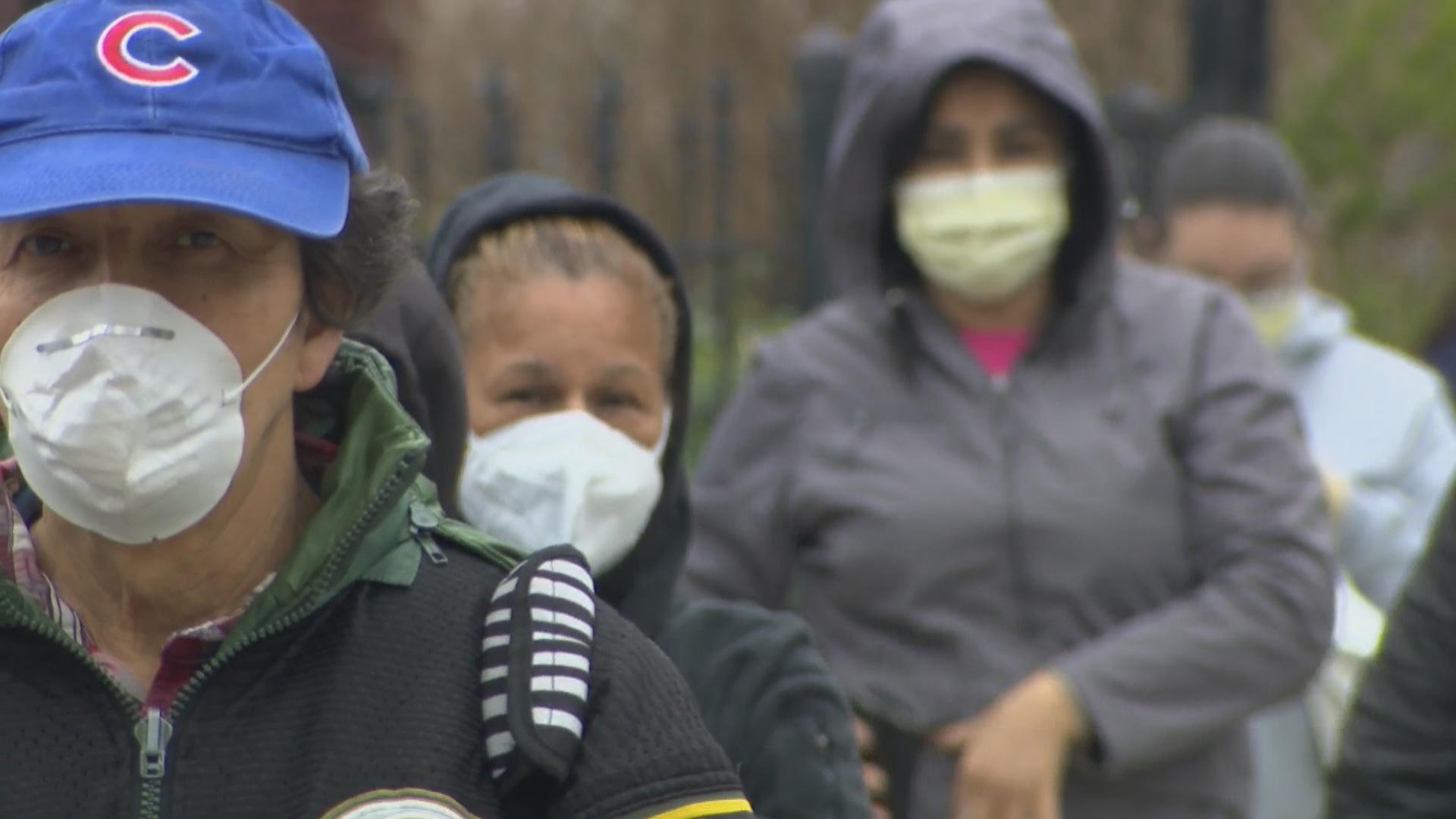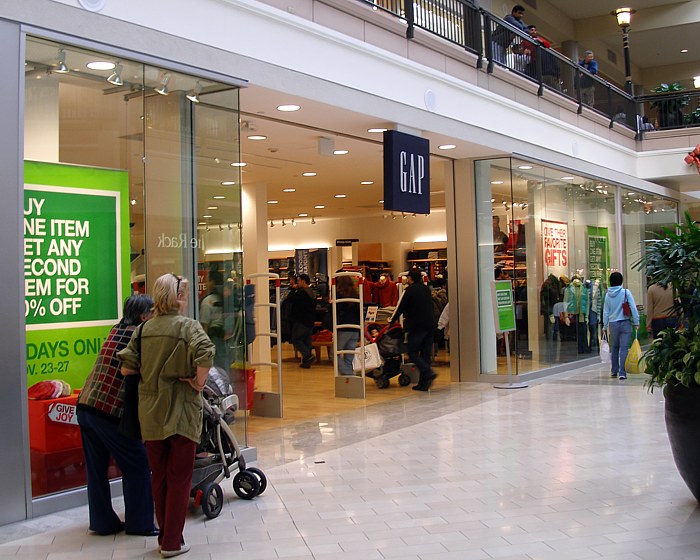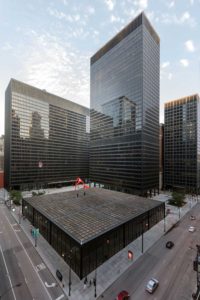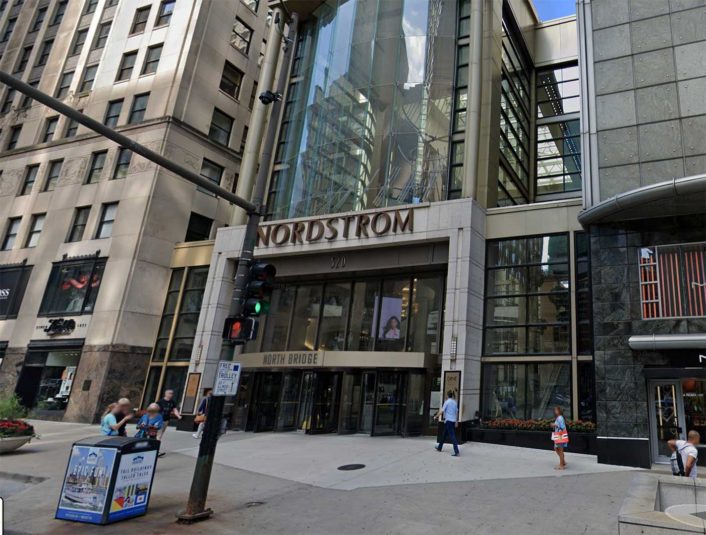COVID-19, Commercial Leases and the Coming Tsunami of Litigation
My promise to you is that the phrases, “in these unprecedented times” and “new normal” will not be used in this blog post. This is not to suggest that these terms aren’t appropriate during the pandemic of COVID-19, it’s just that their overuse has pummeled any meaning and visceral impact into dust.
That caveat aside, wow, 2020 is not what I had expected. If I told you on New Year’s Eve that in three (3) months, you’d be ordered, indefinitely, to shelter in place in your home but for going out to buy subsistence living goods, almost all retail businesses would be closed, office buildings would be closed, workers sent home, all gyms and health clubs would be closed, most air travel unused, all professional sports cancelled, all college students sent home mid-semester, all college sports shut down, including the Division I Men’s Basketball Tournament a/k/a “March Madness”, 30 million Americans would lose their jobs, hospitals would become overwhelmed with highly infectious patients, and our State and local governments would basically mandate how we live our every day lives, all due to a type of flu-like virus, you would have thought I was describing a new exciting science fiction series on Netflix!
Regrettably, I am describing the world in which we all now reside.
Charles Darwin, the famous evolutionist once said, “it is not the strongest of the species that survives, nor the most intelligent that survives. It is the one that is most adaptable to change”. In a world where it is human nature to be resistant to change, we have all now been involuntarily forced into changing our daily lives. Like it or not, we all have an opportunity to turn this change into something good. We have more time to spend with family, more freedom to choose where and when we work, more time bonding with young children, more time spent outdoors and much more.
I thought I would take the opportunity to discuss some rapidly evolving changes I have seen in the legal profession which truly highlight how lawyers and their clients adapt to certain events and circumstances.

If you’re an attorney with corporate clients, then you’re an attorney scrambling to understand how COVID-19, and government-imposed restrictions have impacted not only your client’s business, but also the contracts into which they have entered. From business interruption insurance, to missed contractual deadlines, and on to the tens of thousands of commercial tenant and landlord disputes, the Circuit Court of Cook County will be a very busy place.
For example, just recently, a consortium of mega-retailers including the Gap, Athleta, Banana Republic, Janie & Jack and Old Navy filed a complaint in the Circuit Court of Cook County against Brookfield Properties, the nation’s largest shopping mall operator with properties across the United States. In the complaint the plaintiffs, who are tenants in Brookfield Mall properties, ask the court for declarative relief such that:
“…the subject leases and applicable law nullified any obligation to pay rent beginning in March 2020, entitle Tenants to a refund of rent and expenses paid in advance for March 2020, and require that the Leases be modified and reformed, or rescinded, canceled, or terminated as a matter of law.”
The plaintiffs have made the following allegations in the lawsuit:
- We entered into lease agreements with Brookfield Properties with the understanding that Brookfield would, “…provide (us) with commercial retail space suitable for the operation of retail stores selling apparel.”
- “…the intended use of the (stores) was frustrated, became impossible, illegal, and impracticable,” based on the restrictions imposed by local authorities and Brookfield Properties.
- Brookfield has wrongfully demanded that the stores pay rent during forced closures
- Simultaneously, Brookfield has disputed our right to keep stores closed and to, “modify the Leases due to this radical change in circumstances.”
As you ponder the specific allegations in this complaint, it becomes clear that nearly any retail business operating from leased property that had been shut down due to government action/civil authority by virtue of being deemed non-essential by state and local governments could make similar claims. These are uncharted waters and nobody has a playbook to deal with these complex legal issues. Whether you are a dental group that could not see patients, a chain of health clubs that was closed or a computer repair shop reliant on walk-in customers, there is a potential case to be made that the actions of government and civil authorities and separately, the COVID-19 circumstances, were all unforeseeable and made commercial operations and obligation as contemplated in the leasing agreement impracticable.

Force Majeure Clauses in Illinois Commercial Leases and Contracts
Many of you may have seen the words, “force majeure” in the news or print media. Force majeure, a French word that translates into “superior force,” is defined by Black’s Law Dictionary as, “[a]n event or effect that cannot be anticipated nor controlled.”
Prior to COVID-19, force majeure clauses were typically imagined as legal justification for non-performance as a result of dramatically altered circumstances resulting from natural, catastrophic events such as floods, hurricanes, or asteroids. (OK, I made the asteroid impact event up, but given where we’ve been the past few months, who wouldn’t write that into a future force majeure agreement!)
If included in a leasing agreement, something that isn’t as automatic as one might expect, the lessor typically prefers a higher level of specificity in the force majeure clause to strengthen the obligation of the lessee to pay rent, even when unforeseen circumstances occur. For example, rather than simply identifying “floods” as a force majeure event, a more tightly written clause might specify “floodwaters measured at this location exceeding the highest measured waters in the last 100 years.”
Conversely, a lessee would likely favor broader, less specific force majeure provisions that cover not just acts of God, but also acts of humans (labor strikes, government edicts, civil unrest, etc.) that could neither reasonably be imagined, nor anticipated, when the parties entered into the agreement.
In the context of COVID-19, it’s fairly unlikely that “pandemics” was among the specifically listed events covered by a force majeure clause, but that omission doesn’t mean that a lessee has no cause for action. Many commercial leases make mention of government actions or unanticipated laws as a triggering event for a force majeure clause.
 A recently decided case, In re: Hitz Restaurant Group, suggests that at least in The U.S. Bankruptcy Court for the Northern District of Illinois, courts are inclined to side with the lessee when a force majeure clause identifies laws or government actions and orders as a triggering event.
A recently decided case, In re: Hitz Restaurant Group, suggests that at least in The U.S. Bankruptcy Court for the Northern District of Illinois, courts are inclined to side with the lessee when a force majeure clause identifies laws or government actions and orders as a triggering event.
In 2019 the Hitz Restaurant Group, entered into a commercial property rental agreement with The South Loop Shops, the landlord. By the end of 2019 the restaurant group was late in paying rent and on January 2, 2020, the landlord filed a complaint seeking to compel rental payments. In late February of 2020, just a day prior to the trial date for the landlord’s complaint, the Hitz Restaurant Group filed for Chapter 11 bankruptcy, effectively putting the landlord’s lawsuit on hold.
In the intervening weeks, COVID-19 transformed from a “problem over there” to a pandemic over here, including in Illinois. With the backdrop of Governer Pritzker’s COVID-19 closures of restaurants, the landlord responded to the Hitz bankruptcy petition by filing a claim for post-petition rental payments. The key point in the landlord’s filing was that even though the force majeure clause specifically identified “orders of government” as triggering events, this was superseded by the following language in the force majeure clause:
“(a) lack of money shall not be grounds for Force Majeure”
Judge Donald R. Cassling, of the United States District Court for the Northern District of Illinois, reasoned that the executive order issued by Illinois Governor J. B. Pritzker on March 16, 2020 suspending the serving of food and beverages in restaurants, was “unquestionably” the proximate cause of Hitz’s inability to pay rent.
When this holding was handed down, you could hear the sound of landlords across the city rifling through lease agreements looking for the words, “orders of government,” or “actions of government officials” in the force majeure clauses.
Commercial Impracticability and COVID-19
Taking the discussion of force majeure a step further, In almost every force majeure claim the doctrine of “commercial impracticability,” comes into play, whether or not specific language relating to “orders of government” or “actions of officials” exists. Commercial Impracticability is an Affirmative Defense that can be raised to the obligation to perform on any contract during the period of commercial impracticability.
St. John’s Law Review explains commercial impracticability as follows:
“Impracticability covers those sets of circumstances where performance is literally possible but is so radically different from that contemplated by the parties as to become impracticable. This doctrine is predicated on the theory that the parties to a contract made their bargain with specific circumstances in mind, and that their basic assumptions about the world in which the contract was to be performed were thereafter upset by a contingency whose nonexistence was a basic assumption of the contract. “
The plaintiffs in the Brookfield Properties case never mention the term “force majeure” in their filing, but scattered throughout the 20 page document are multiple uses of the terms impracticable (18 times), impossible (22 times) and unforeseeable (8 times). Do you see a pattern here? In Hoosier Energy v John Hancock Life, 588 F. Supp. 2d 919 (S.D. Ind. 2008), the Court held the doctrine of “Temporary Commercial Impracticability” can be asserted as a valid affirmative defense provided a party can show that unforeseen circumstances or events, beyond a party’s control, render their obligation to perform impractical. The court found that the doctrine excuses the obligation to perform on a legal contract until the circumstances of impracticability lasts plus a reasonable time afterwards. This equitable affirmative defense is essentially the equivalent of a common law force majeure clause. This equitable affirmative will undoubtedly be litigated in the courts during this COVID-19 Pandemic and both lawyers and business owners should be aware of how and when to assert the same.
In essence, the retailers who brought the Brookefield Properties case are suggesting that because of the edicts of local authorities shutting down non-essential retail business activities, and operating decisions made by the lessor, Brookfield Properties, that transacting retail businesses from these stores during COVID-19 have met the legal hurdle for commercial impracticability and therefore the courts should grant the stores a myriad of relief from their lease agreements.
The Future of COVID-19 Litigation Relating to Lease Agreements.
By definition, cases like this end up in court precisely because there is a disagreement on the law. In future blog posts I’ll delve into the miasma that attorneys and their clients on both sides of a commercial lease case can expect as these disputes wend their way through the State of Illinois and Cook County courts.
For example, could either party to the agreement imagine that a pandemic might impact their ability to carry on commercial activity as anticipated under a lease agreement? At first blush you might think “no”, but there was the SARS scare of 2003 that foreshadowed what we’re experiencing with COVID-19 today. I’m betting that deep in the bowels of large retail organizations is a contingency document that a low-level staffer or intern had written a decade ago in response to SARS. I will also delve into the area of business interruption insurance and the plethora of claims that have been brought by business owners against their commercial general liability insurance carriers for their lost business revenues.
Did the retailers make a reasonable effort to carry on with business during the prohibition of in-store shopping? One might argue that if the GAP or Athleta did not engage in curbside sales during the shutdown, it was their own operating decisions that have put them on the wrong side of the commercial impracticability argument.
It’s going to be a very busy Fall for commercial real estate and other litigation.
If you are a business or commercial property owner with questions about your lease agreement, please contact me at gudell@bupdlaw.com. I’d be happy to answer your questions.

Glenn is licensed to practice in Illinois. He received a Juris Doctorate degree from the Western Michigan University, Cooley Law School in 1990 and a BA degree in Psychology from the University of Wisconsin in Madison in 1986.

